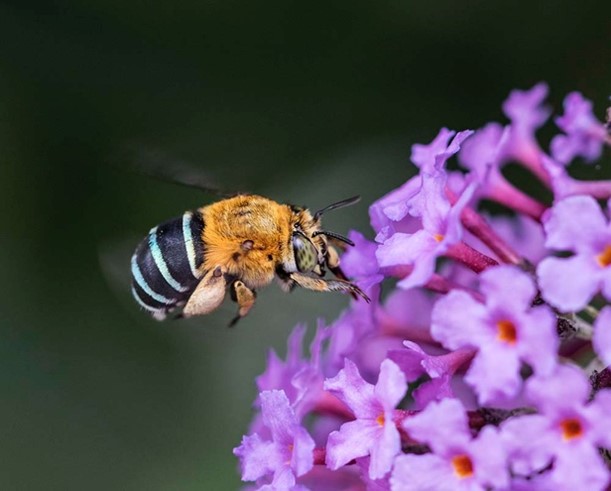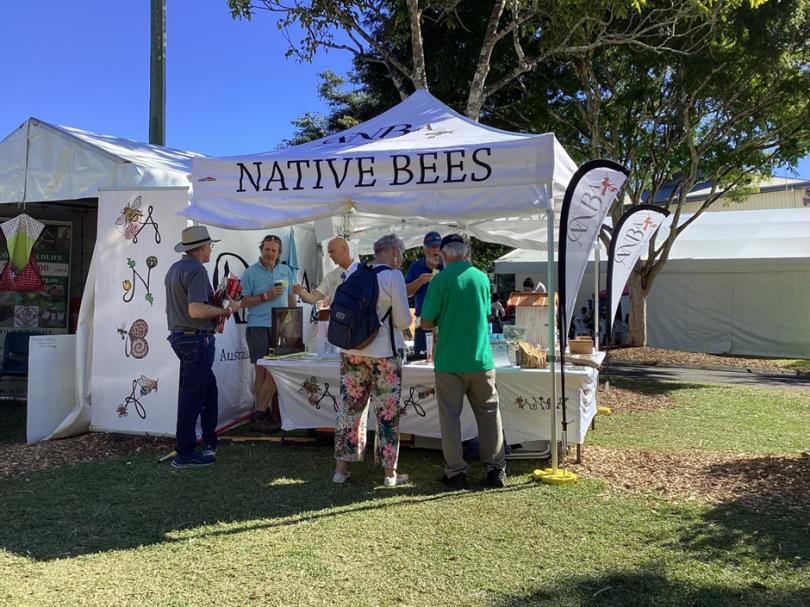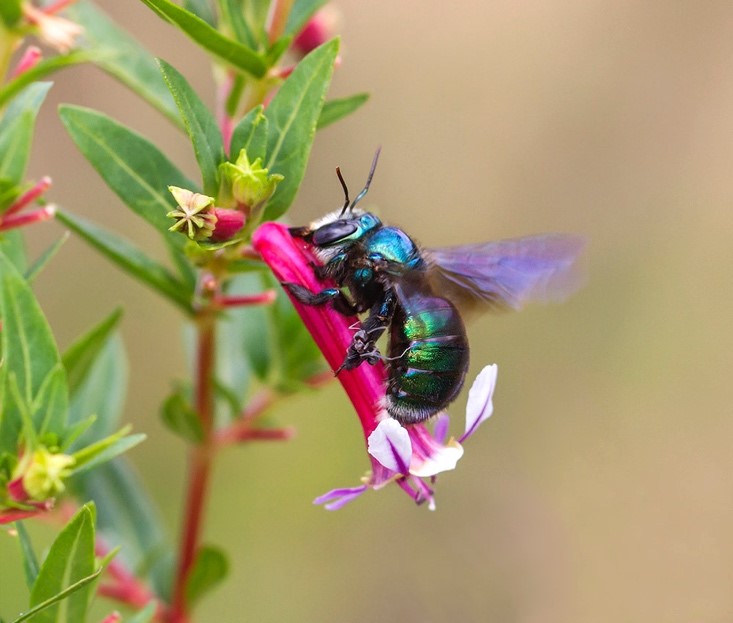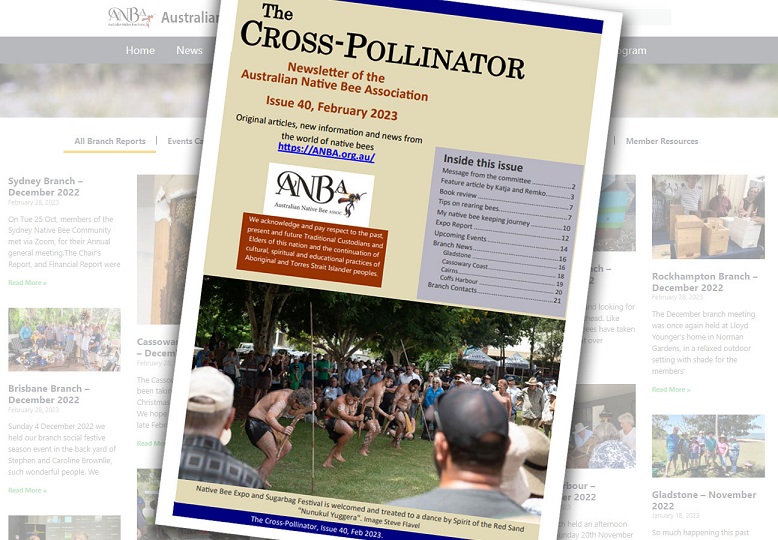Raising awareness
One of our goals is to raise awareness of our beautiful and important native bees
Did you know we have over 1650 species of native bees in Australia?
Native bees have co-evolved with our native plants, and are the most skilled and effective pollinators of these plants. They are often found on exotic plants as well. Most don’t make honey, but are spectacular visitors to our gardens.
Our native bees deserve a much higher profile than they currently hold, and we believe that by working together this is something we can achieve.
What can you do?
We ask event organisers and businesses to consider including a photo or graphic of an Australian native bee/s in your online designs when advertising garden shows, spring festivals and promotions.
We would love to talk more with someone from your organisation regarding this matter and hope you will give this some consideration.

Contact our promotions committee
Stewart Clarke
Chair, Promotions Committee
Australian Native Bee Association
Email: tba@anba.org.au
Growing community

Australian Stamps
Four Australian native solitary bees were recognised by being included in a series of Australian stamps in 2019. These native bees are also an important part of Australia’s biodiversity and their ability to thrive is threatened by habitat destruction and fragmentation as well as climate change.

Past Events
ANBA regularly attend events around Australia. These native bees are also an important part of Australia’s biodiversity and their ability to thrive is threatened by habitat destruction and fragmentation as well as climate change.

Photos of Native Bees
Visit Erica's fantastic website full of Australian native bees. These native bees are also an important part of Australia’s biodiversity and their ability to thrive is threatened by habitat destruction and fragmentation as well as climate change.

Include your event in our newsletter
Advertise your event in our members newsletter. These native bees are also an important part of Australia’s biodiversity and their ability to thrive is threatened by habitat destruction and fragmentation as well as climate change.
